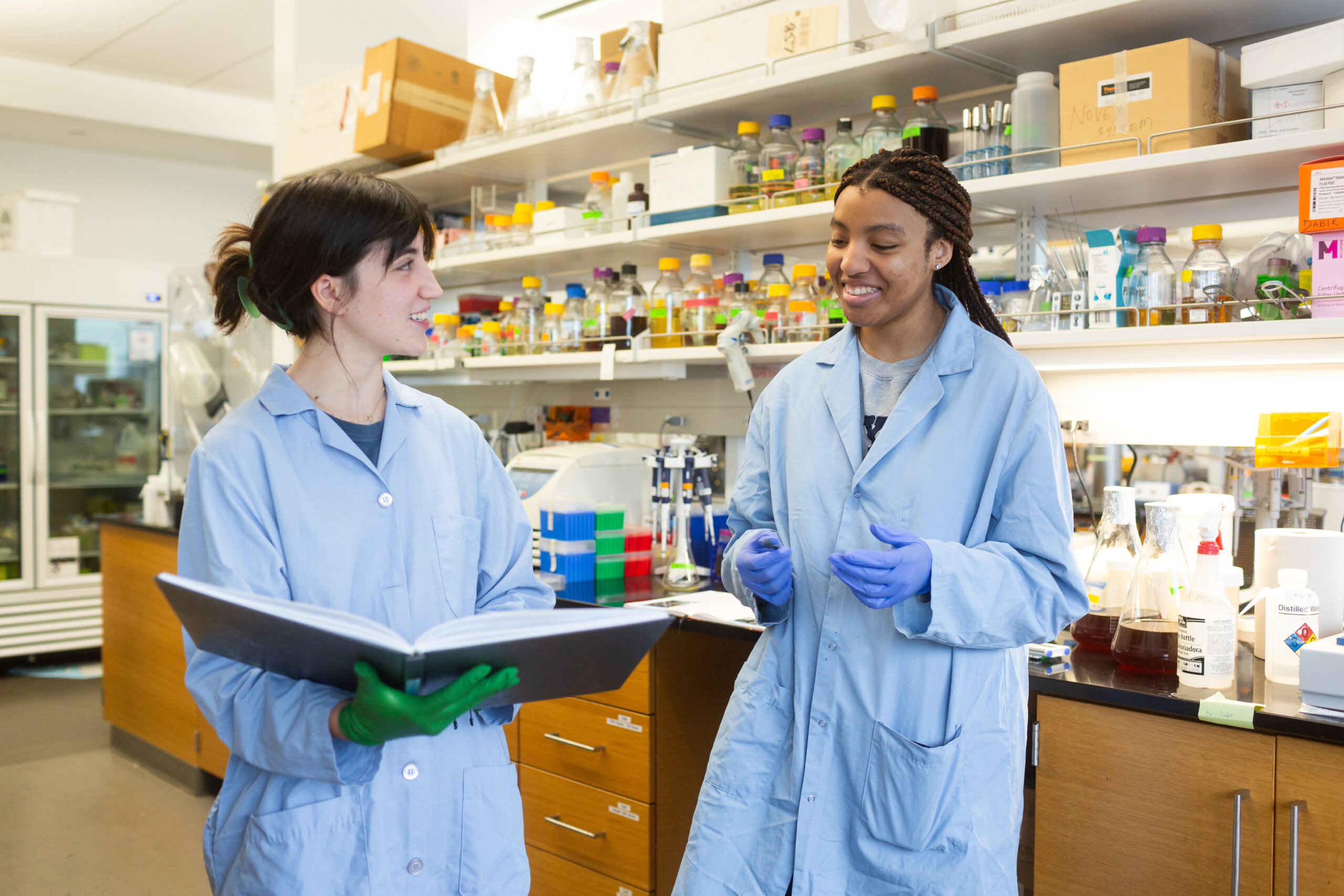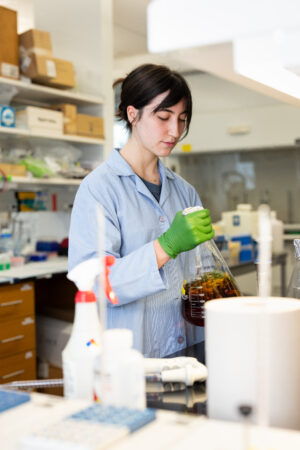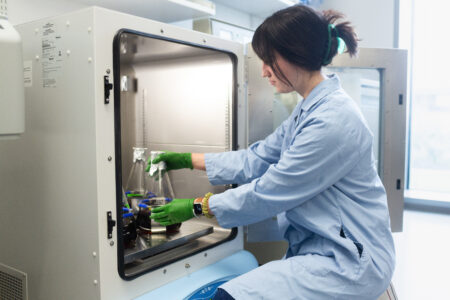
This summer, more than 80 students and faculty made up the Seaver Summer Research Community. The topics ranged from studying anti-fungal properties of plant extracts, to heat transfer properties of different liquids, and more. We connected with some of the students to learn more about their research projects. Today, we spotlight biology major Caroline Thorpe ’24, mentored by Deepa Dabir, assistant professor of biology.
Tell us about the research you’re working on this summer.
I am studying a pathway in the endoplasmic reticulum called the Unfolded Protein Response (UPR). This pathway sends signals to the nucleus when there are misfolded proteins in the ER, and these signals will tell the nucleus to transcribe proteins that can help refold the proteins (called chaperone proteins). This pathway is important because when this pathway malfunctions, there will be too many misfolded proteins in the ER and they clump together. Some proteins move from the ER to the mitochondria, but when they are clumped they cannot move to the mitochondria. These clumped proteins can cause disease, and in humans a non-functional UPR pathway is found to be one of the many contributing factors to Creutzfeldt-Jakob disease, Alzheimer’s, and Parkinson’s.

How does your research relate to other fields?
Someone outside of the field of molecular/cell biology would find this project interesting because it informs mechanisms of prevalent diseases that can affect friends and family. While this research is done in yeast and not humans, it is more efficient, ethical, and cost-effective to conduct research in yeast that can inform scientists who study this pathway in mammalian models. Diseases like Alzheimer’s, Parkinson’s and Crutzfeldt-Jakob disease have no known cure currently, and research on the mechanisms that contribute to these diseases could help shed light on early-detection tests or treatments.
What’s the biggest lesson that you’ve learned from your research?
While working on research I have learned that the process is much more informative and critical than the result. I also have learned a lot about time-management. I have become super organized to make sure I can get experiments done within a reasonable timeline. I’ve really grown in my ability to trouble-shoot and think “on the fly”. Sometimes you are in charge of troubleshooting your own protocol, and so you learn how to do your own research on what people have done in the past to solve a similar problem, or you learn how to come up with ways around a problem. Through research, I have also learned delayed-gratification: the excitement when something works after weeks and weeks of experiments is so fulfilling and gives you motivation to start the next experiment.
How does your research compliment your coursework?
My research compliments the coursework of the biology major because it is a real-life application of concepts I have learned throughout lower and upper division courses. I took cell function as a lower division my sophomore year, and concepts of transcription, translation, and protein folding are things I’ve really come to understand as I denature proteins, analyze a transcription protein, and see physical differences caused by mutations. I took molecular biology my junior year as an upper division where we learned about experimental techniques to study protein and DNA function, and I would go to lab later that very day and use those techniques, so it gave me a better understanding of the application of the techniques. I took cell biology lab this past spring where my research mentor taught the class and the in-lab refresh of concepts specific to her research helped my understanding of what I do in research.
Do you have any advice for someone on the fence about doing research?

I would say go for it. When I started I was definitely afraid of experiments failing or not going to plan, but I have learned that experiments don’t necessarily fail when you don’t get what you expected, they just give different results. I have met so many great friends in lab, some of whom have graduated and are off in dental, graduate, or medical school programs. My advice is to think of research as a never ending class, but with no homework (or minimal homework). Your professor or lab mates will always be there to help you, so you’ll never be on your own with no one to ask for guidance. I think research is a great way to see your coursework apply to real life, it helps with time-management, and has helped me inform my career path.
This is a part of a series on summer research students are conducting at Seaver College.
Edited by Noémie Boucher ‘25



